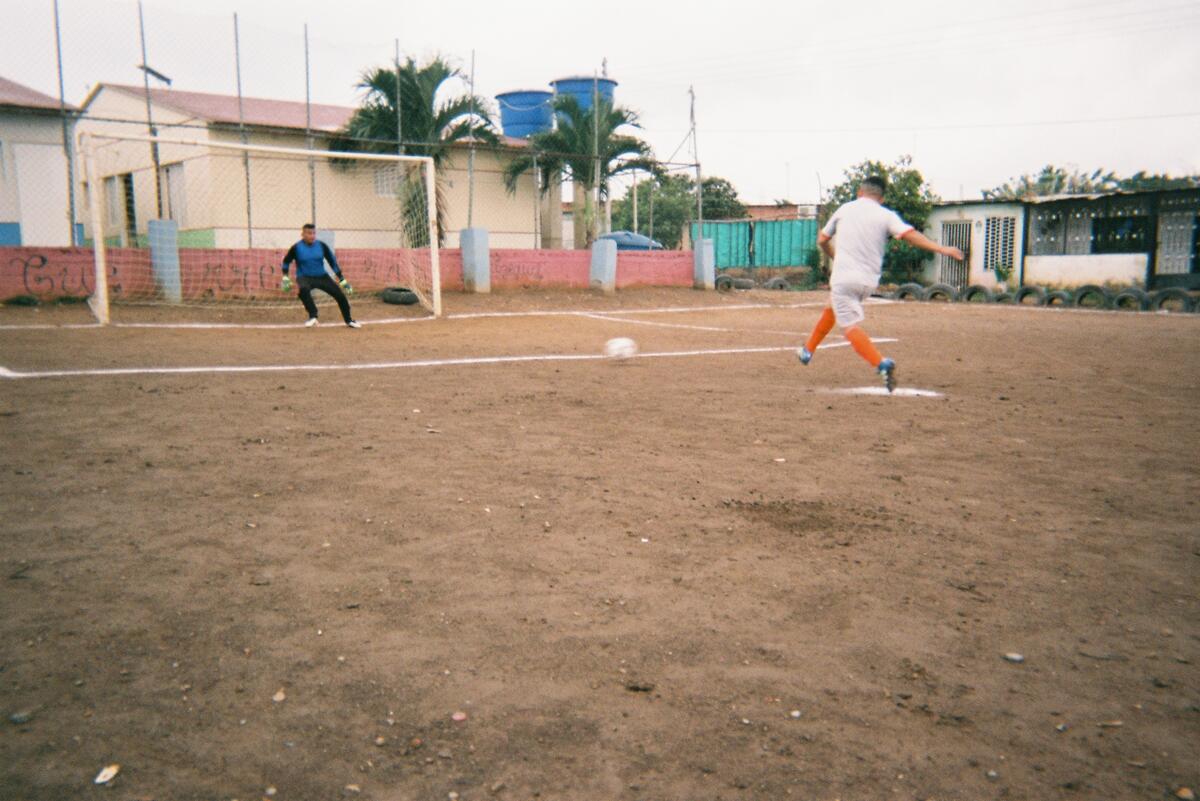Virtual Reality

Virtual Reality
A crowd of boys huddles outside the corrugated iron shack on the Champs-Élysées. But this isn't Paris – it's the main drag in Za'atari refugee camp. A young man, in his twenties, clutches a wad of Syrian lira and Jordanian dinars, guarding the closed door like a nightclub bouncer.
"This is it," a colleague yells, beckoning me over. "This is the arcade."
A hotspot for boys, this is Za'atari's only gaming centre. A place where Syrian boys can find a semblance of normality, a taste of their old life back home. Here, for 2 dinars, or less than US $3, a kid can come inside and play computer games for 90 minutes.
I peer inside the dark, makeshift arcade and see nine faces bathed in the glow of computer screens. A few of the boys laugh at my presence inside their safe haven, but most are so entranced they don't even notice I'm there.
Then it hits me. Each boy is transfixed by the very same game. They're all staring down the barrel of a gun, firing at the enemy in a popular video game called Counter-Strike.

Most of the refugees living in Za'atari are from the Syrian town of Dara'a. After more than two years of war, the shelling there is still so intense that it's not safe to return home. And because most of the camp's residents are kids – 60 percent have yet to turn 18 – it's safe to say that many of the boys at the arcade have personally lived through harrowing experiences of war and flight.
The bouncer motions to me, and I exit the shop. With the help of a translator, he tells me that he's the owner. Less than two months ago, this young man, who prefers to remain both nameless and faceless, came to Za'atari with his life savings in Syrian lira. He converted it into Jordanian dinars to buy the computers at $400 each. Today, he's quite the savvy entrepreneur, managing one of the most popular spots along the Champs-Élysées.
"These kids lived and saw the war in Syria," the shop owner tells me. "They always play Counter-Strike because it reminds them of home."
He tells me that he installed four games on each of the computers, including a rally car game that's popular elsewhere. But here the boys only have eyes for Counter-Strike.
While I'm not a huge fan, I have no substantive issue with the "shoot 'em up" games that boys (or girls for that matter) play on their consoles. Over the years, I've watched my young nephews take aim at thousands of "bad guys" on their PlayStation. For them, these games were nothing more than an entertaining diversion. A portal into a foreign, imaginary place that bore no resemblance to their daily reality.
For these young Syrians, it's just the opposite. Counter-Strike is a gateway into the familiar, an entry point to the world they know, and a passport back to the home they miss.
"These kids lived and saw the war in Syria," the shop owner tells me. "They always play Counter-Strike because it reminds them of home."








